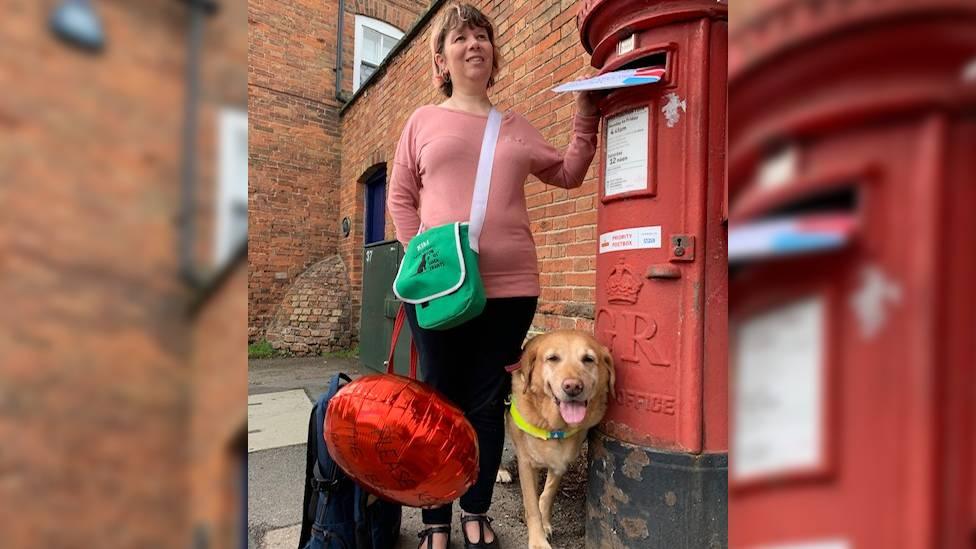Autism: Parents of blind girl want better vitamin A testing
- Published
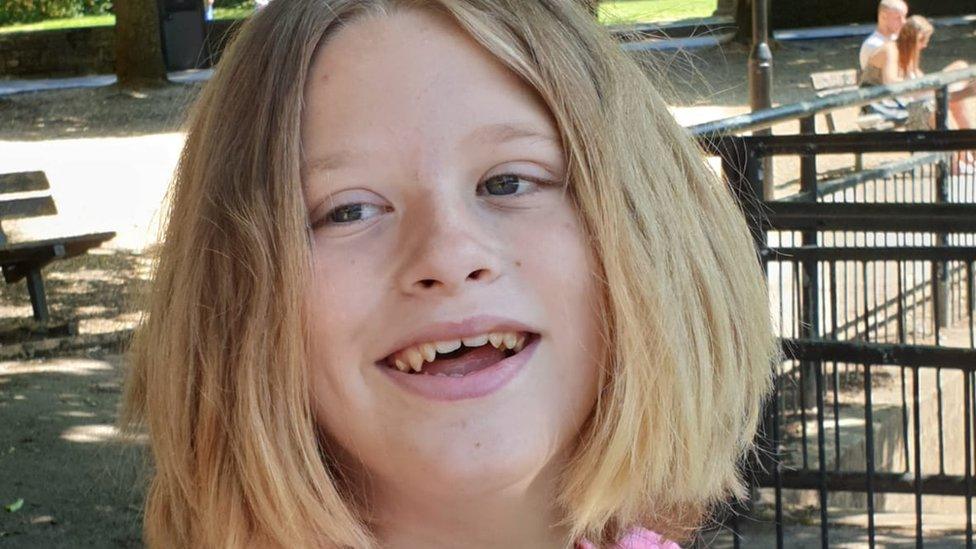
Bella's parents said her diet was restricted because of her autism and limited food preferences
Parents of an autistic girl who lost her sight because of a vitamin A deficiency are campaigning to prevent the same happening to other children.
Sam and David Mildon's daughter Bella, 12, lost her sight after routine blood tests failed to pick up the deficiency.
They are calling for more comprehensive testing for all autistic children who suffer from dietary restrictions.
Advisory body NICE is reviewing its guidance about handling nutritional deficits among children with autism.
Paul Chrisp, director of the National Institute for Health and Care Excellence, said: "We are currently consulting clinical experts during a review into our guideline on the support and management of under 19s with autism spectrum disorders.
"We have asked these experts about the issue of nutritional deficiency and restricted diets as part of this review and expect to share more information in the coming months once our initial consultation is completed.
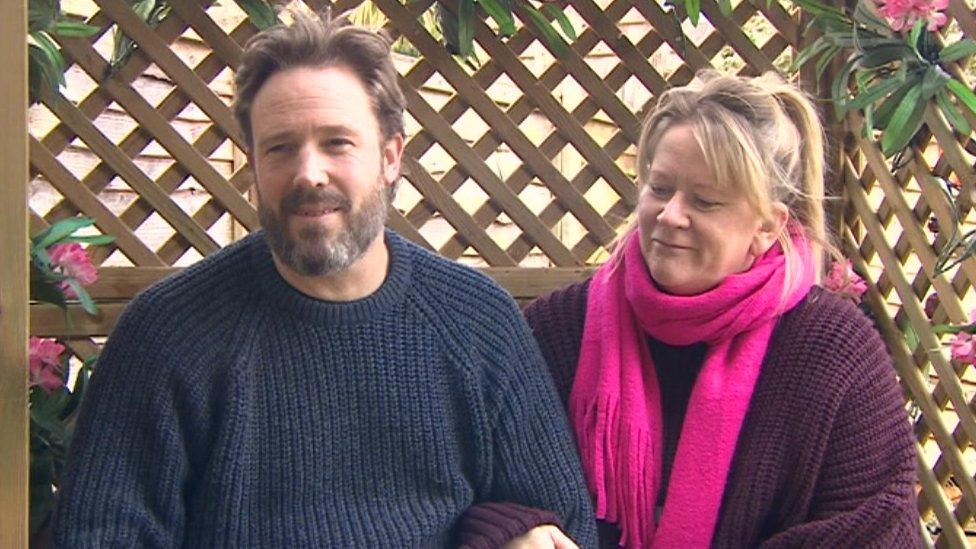
David and Sam Mildon are campaigning for children with restricted diets to be tested for vitamin A and mineral deficiencies
The BBC understands that Bella is one of five children seen by Bristol Children's Hospital in recent years who have lost their sight as a result of vitamin A deficiency.
Bella has the mental age of a one-year-old and like many children with autism will only eat certain foods, she eats Marmite sandwiches, crisps and water.
Her parents became worried about her eyesight when she began knocking into objects on the weekend of 23 January and took her into hospital several times the following week.
"We knew something was going on so we went in on the Saturday. We then went in again on the Monday and again on the Wednesday and Thursday, and not one blood test was done in that time," said Mrs Mildon.

Bella's parents noticed there was something wrong with her eyesight when she was struggling to use her iPad
Bella collapsed in her bedroom on 31 January and was given CPR by her father before being taken to hospital where she spent four days in intensive care.
"He found her not breathing, completely limp with her mouth open and eyes rolled back in her head.
"When she woke up her eyes weren't working properly and they told us that she had probably lost her vision. We finally brought her home but we brought a different Bella home, one that can't see," Mrs Mildon said.

Matthew Hill, health correspondent, BBC Points West
Blindness caused by a lack of vitamin A is a phenomenon normally associated with children suffering starvation in sub-Saharan Africa - not the UK.
If Bristol has potentially had five cases in recent years then this may well be replicated elsewhere across the country. Studies have suggested that children with autism are more than likely going to have a restricted diet.
That may be because they have gluten intolerance, suffer dietary deficiencies, or may not like the taste, colour or texture of food.
The obvious question is can parents do something about that by giving them vitamins?
Well that is easier said than done according to Annie Kingston, a specialist speech and language therapist, who says if someone tries to add vitamins to their food then children are likely to reject not only the vitamin, but also the food.
And if you have someone who is already rejecting a lot of food they are not going to swallow or chew vitamins - or have drinks containing vitamins.

Mrs Mildon said she spoke to the hospital's head of neurology to ask whether there was anything that could be done to help prevent other children from losing their sight.
The doctor told her "I think there has to be a blood test that is more comprehensive for these children", Mrs Mildon said.
"Our daughter is blind and it appears irreversible. Currently there are no guidelines for children with restricted diets to have regular vitamin A tests.
"If this had been the case, our daughter would not now be blind," she continued.
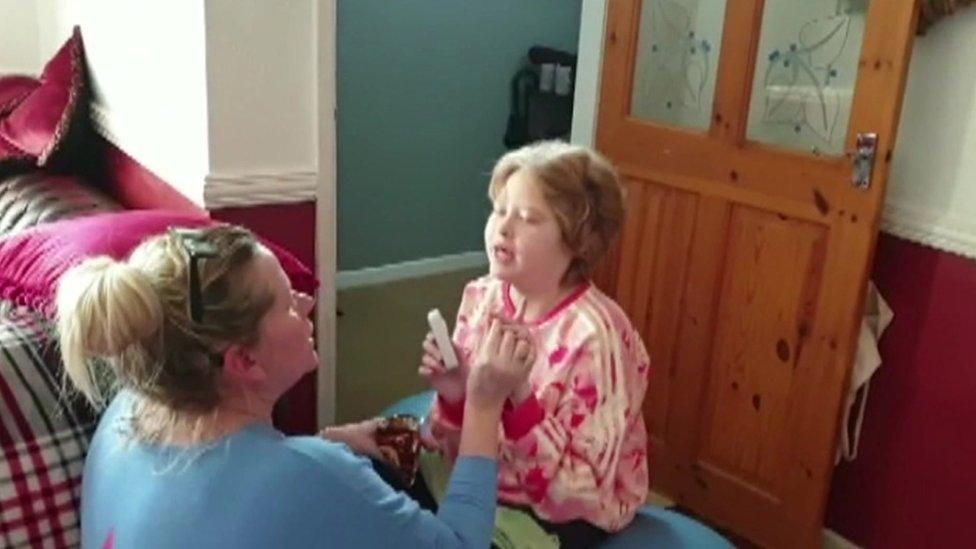
Bella's parents have written to the health secretary, their MP Liam Fox and The National Institute for Health and Care Excellence
Bella attended Ravenswood School in Nailsea that takes pupils with complex needs including many with autism.
"This is having such a profound impact on our young people that it's imperative that... we are able to check that we are doing everything we can to support these young children," deputy head teacher Katie Barnes said.
Medical director at University Hospitals Bristol and Weston NHS Foundation Trust, Dr William Oldfield confirmed the hospital was continuing to provide "care and treatment" for Bella.
"Wider research is needed to better understand which patient groups are more at risk of developing nutritional deficiencies caused by a restrictive diet, to further inform treatment and support as appropriate," he added.

Follow BBC West on Facebook, external, Twitter, external and Instagram, external. Send your story ideas to: bristol@bbc.co.uk , external
- Published15 March 2021

- Published24 March 2021
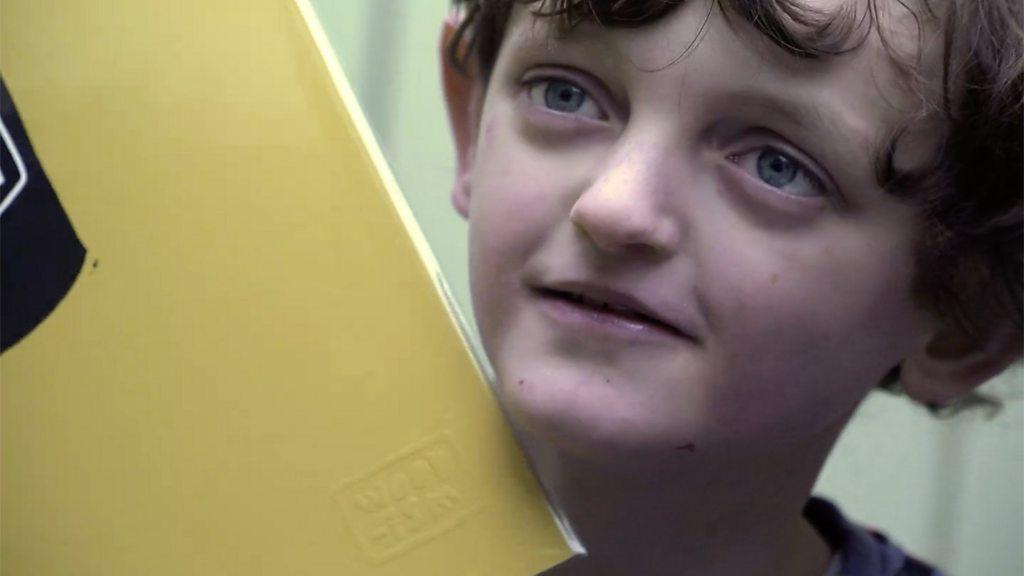
- Published24 March 2021

- Published19 March 2021
